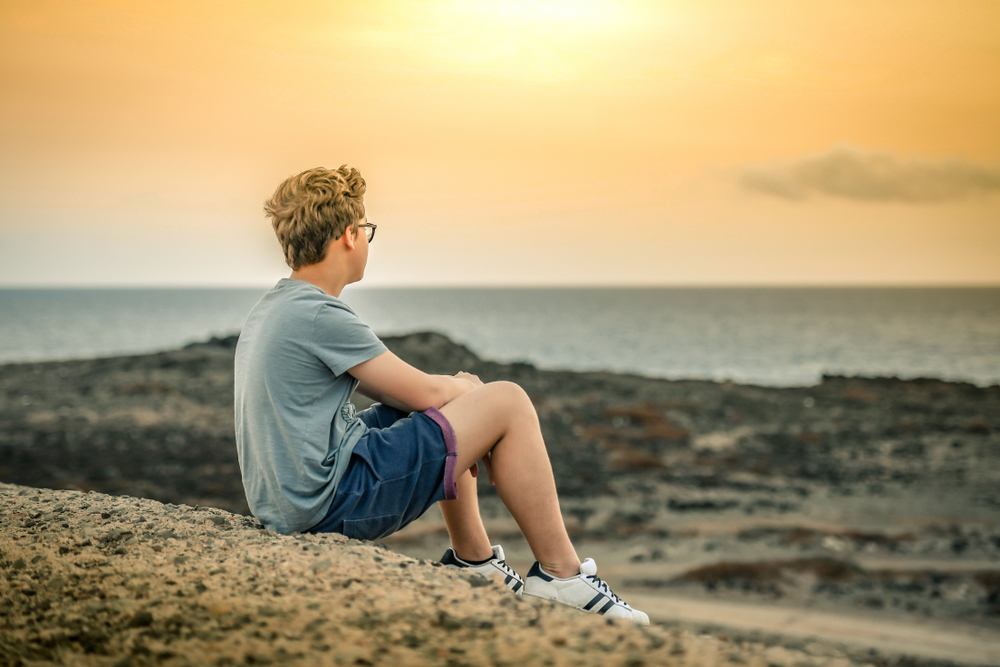A new year, and a new decade, promise a new start for us and our kids. We have the ability to introduce a new practice within ourselves and our families that will boost resilience, reduce anxiety and depression, and improve overall well-being.
This practice has nothing to do with exercise, eating, or sleeping, though all of those things are important. Rather, it has to do with mindfulness.
What is mindfulness? Mindfulness is the art of focusing your awareness on the present moment and calmly noticing your emotions and physical sensations without judgment. It’s the ability to tune in to what you are feeling right now and accepting that there is no right or wrong way to feel. This simple act can have a profound effect on your well-being.
According to research, just five minutes of mindfulness practice a day can benefit the body, the mind, and the spirit. Here’s how:
Mindfulness improves focus. Mindfulness helps us tune out distractions and improves our ability to concentrate and learn.
Mindfulness helps us navigate strong emotions. Brain scans have shown that the size of the amygdala, the brain’s “fight or flight” center, decreases with mindfulness practice which can help reduce fear and anxiety. As this part of the brain shrinks, the pre-frontal cortex, which is responsible for higher order brain functions, grows larger. In other words, with mindfulness practice, primitive reactions to stress are replaced by thoughtful ones, improving our ability to respond to the everyday ups and downs of life.
Mindfulness boosts immune function. By reducing stress, mindful practice improves our ability to fight off sickness and disease.
Mindfulness fosters compassion. Mindfulness practice fosters compassion and makes us more likely to help others in need. Children who practice mindfulness report feeling better about themselves, acting with greater kindness toward themselves and others, and being better able to cope with stress.
Mindfulness affects the way we see ourselves. People who practice mindfulness have a stronger sense of self, a healthier body image, and greater self-esteem.
While anyone can choose to be mindful in any given moment, the benefits of mindfulness are more readily available to us when we practice it daily. And the earlier a child is introduced to mindfulness, the more likely they are to continue the practice. Here are some ideas for practicing mindfulness on your own or with your teen:
- Enjoy a snack together and pay close and careful attention to what you’re eating. Take your time as you feel, smell, taste, and chew each bite. Share your observations and feelings.
- Sit comfortably, with eyes closed or a soft gaze, and focus only on your breathing. Notice the air passing through your nostrils as you inhale and exhale. There is no right or wrong way to do this and no need to do it any differently than you normally would. Just notice it. If your mind wanders, gently bring it back to the breath.
- Go for a walk and pay attention to how your body moves and feels. Time your breathing with your steps. Notice the sights, sounds, and smells that surround you.
- Think of one word that seems calm or soothing. This could be a word like “love” or “peace” or “bird” or “hum.” Repeat the word slowly in your mind while breathing in and out. When your mind wanders, guide your attention back to the word.
- Listen to an online guided meditation together with your teen. Meditation teachers like Tara Brach, Jon Kabat-Zinn, and Mark Bertin offer an assortment of guided meditations for free online.
Practicing mindfulness is like strength training for the brain. Our minds often get so wrapped up in thought that we fail to notice the present moment. Mindfulness practice is a matter of returning to it again and again.
The goal is not to silence the mind or to achieve a state of perfect, uninterrupted calm. Rather, it is simply to pay attention to the present moment without judgment. When critical thoughts arise, as they will, acknowledge them and let them pass by like clouds in the sky.
That’s the practice. It’s simple but not necessarily easy. As you improve, you may notice yourself and your kids feeling kinder, calmer, and more patient. These changes may lead to other changes in your life. What better way to start a new decade?
